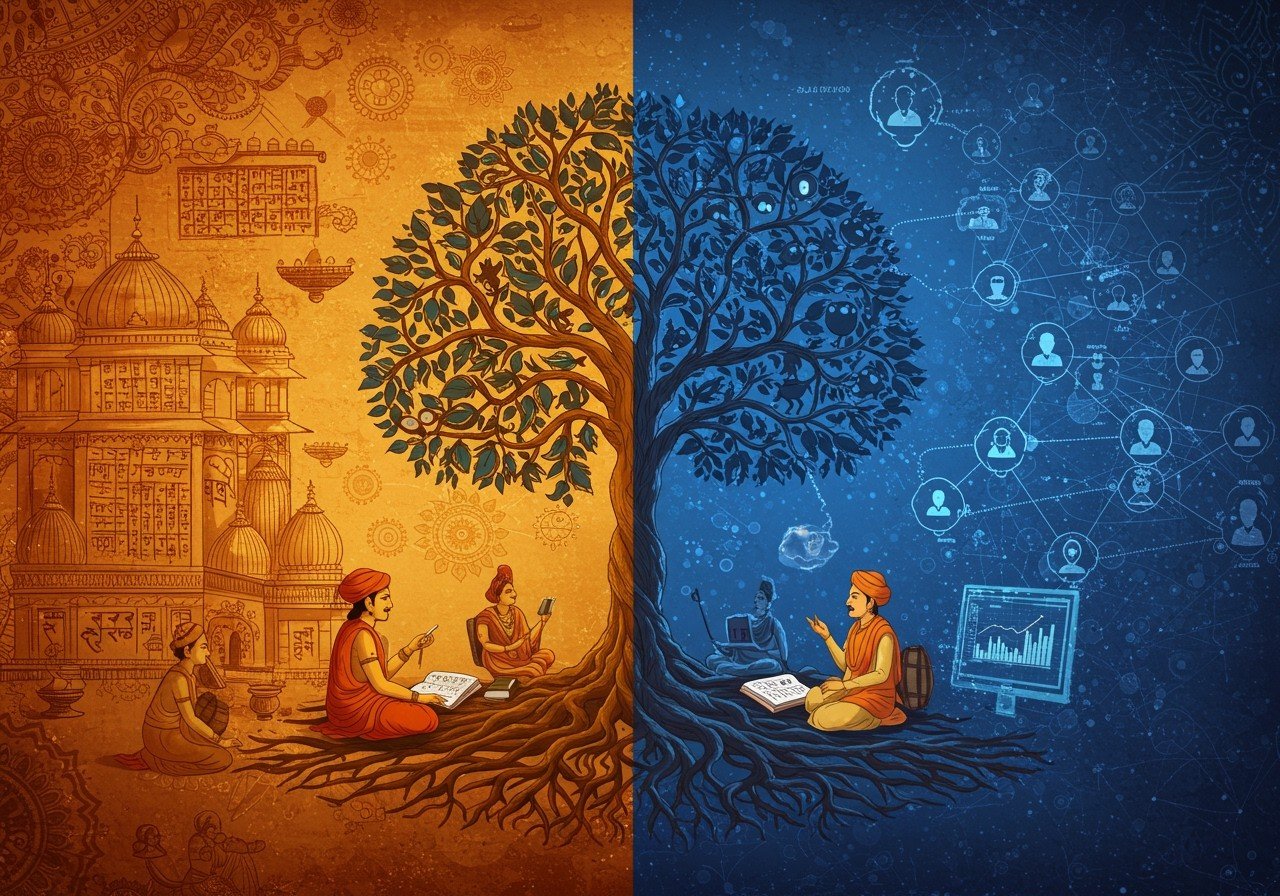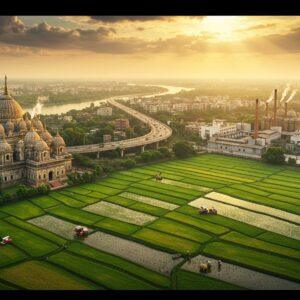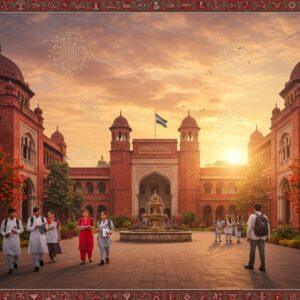
Indology and Sociology are two distinct yet interconnected disciplines that offer valuable insights into the complexities of Indian society. Indology, originating in 1784 with Sir William Jones, delves into India’s rich history, languages, literature, philosophy, and culture. Sociology, a comparatively newer field, examines social structures, interactions, and the dynamics of human behavior within society. This blog explores the fascinating intersection of these disciplines and how they illuminate our understanding of India’s intricate social fabric.
The Interplay of Indology and Sociology
While distinct in their approaches, Indology and Sociology often intersect, creating a more holistic understanding of Indian society. Indology provides the crucial historical and cultural context, while Sociology offers the tools to analyze social structures and interactions. Scholars like Louis Dumont and David Pocock have demonstrated the power of integrating these disciplines to gain deeper insights into India’s social complexities.
This integration is particularly important for effective policy-making and development initiatives. By understanding the cultural nuances and historical roots of social issues like poverty and inequality, we can develop more targeted and impactful solutions. However, critics like Yogendra Singh argue that traditional sociology may sometimes overlook crucial aspects of formal organizations and social change within the Indian context. This highlights the ongoing need for a dynamic interplay between Indology and Sociology.
Delving Deeper into Indology’s Contribution
How has Indology contributed to Sociology in India? Indology has significantly shaped the development of Sociology in India, particularly during the early 20th century. Scholars like G.S. Ghurye integrated Indological insights into their sociological work, enriching our understanding of complex social phenomena. Indology has been instrumental in illuminating various aspects of Indian society:
- The Caste System: Indology has provided valuable historical context for understanding the origins and evolution of the caste system in India, helping sociologists analyze its impact on social stratification and mobility. This historical lens is essential for understanding the complexities and nuances of this deeply ingrained social structure.
- Kinship Patterns: Indology has shed light on the diverse kinship systems prevalent in India, revealing the cultural and historical factors that have shaped family structures and relationships across different regions and communities. This helps sociologists analyze family dynamics and their impact on social organization.
- Religious Practices: Indology has been crucial in understanding the diversity of religious traditions in India, from ancient Vedic rituals to contemporary religious movements. This understanding provides a foundation for sociological research on the role of religion in shaping social values, beliefs, and practices.
Indology’s contribution extends beyond these areas, informing research on rituals, festivals, and traditional institutions. Collaborative efforts between Indologists and sociologists have significantly enhanced our understanding of India’s cultural continuity and change over time.
Indology in Modern Sociology
Indology remains highly relevant in contemporary sociological research. Modern sociologists utilize Indological texts and insights to explore current social issues, including:
- Identity Politics: Indology helps analyze the historical roots of identity formation and its influence on contemporary political discourse and social movements. This historical perspective is crucial for understanding the complexities of identity-based politics in India.
- Cultural Nationalism: Indological research provides insights into the construction of cultural narratives and their role in shaping national identity and ideology. This is essential for understanding the dynamics of cultural nationalism in India.
- Globalization’s Impact: Indology helps analyze the impact of globalization on traditional Indian society, examining how cultural values and practices are adapting and transforming in a globalized world. This helps sociologists understand the interplay between global forces and local traditions.
Furthermore, the rise of digital humanities has made Indological resources more accessible for sociological research, opening new avenues for collaborative studies. Indological studies of ancient Indian cities, for example, inform contemporary urban sociology in India, while research on historical gender roles and family structures enriches modern sociological analysis. Understanding traditional environmental practices rooted in Indian knowledge provides valuable insights into sustainable development and ecological consciousness.
Poojn.in: A Bridge Between Tradition and Modernity
Poojn.in, India’s leading cultural goods and services store, plays a unique role in supporting both Indological and Sociological studies. Our vast collection of authentic ritual items, coupled with detailed product descriptions and educational content, offers a tangible link to India’s rich cultural heritage. Researchers and students can explore our collection to gain a deeper understanding of the practical aspects of Hindu ceremonies and customs, regional variations in religious practices, and the cultural significance of various ritual items. Explore our collection of Bel malas, Tulsi malas, and Puja cloths to see how material culture connects to broader social and religious practices. Visit poojn.in today to embark on a journey through India’s vibrant cultural landscape.
A Holistic Understanding
The combined lens of Indology and Sociology provides a rich and nuanced understanding of Indian society. By integrating historical insights with empirical research, we can better appreciate the intricate connections between past influences and present realities. This interdisciplinary approach is essential for navigating the complexities of a rapidly changing India, preserving its rich traditions while addressing contemporary challenges. Explore further by delving into the wisdom of the Vedas in our blog post Vedas: Ancient Wisdom for Modern Life – Practical Applications and discover the holistic well-being approach of Yoga and Ayurveda in Yoga & Ayurveda: A Holistic Wellbeing Approach.


